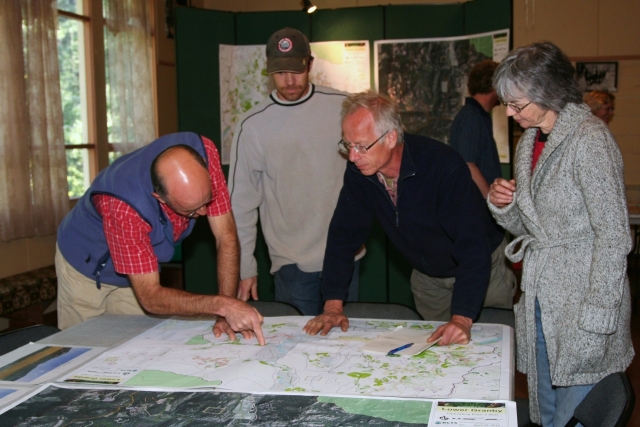COMMENT: Timber sales will degrade an already devastated North Fork
The landscape surrounding the Granby and Gladstone Parks has been totally fragmented by logging and road building. That’s the stark message conveyed in the satellite map released today by Friends and Residents of the North Fork.
Logging roads have opened up motorized access to Granby Provincial Park and, in effect, the Park has become an “island” surrounded by logging activity and road access from every direction.
In 1995, when the Granby and Gladstone Provincial Parks were created, there was an intact wildlife corridor between the parks. Clear-cut logging activity and road building in the past 18 years has fractured that corridor and today there is almost no connectivity between the parks. Lynch Creek North, including the Jones and Cannon Creek area, is approximately 3,500 hectares of unlogged forest representing the last intact forest and wildlife corridor extending from the alpine peaks of Mount Faith to the Granby River.
B.C. Timber Sales is planning to start a major upgrade and extension of the Lynch Creek North Forestry Road in preparation for logging over 90 hectares of forest in the area. This amounts to over 600 logging truck loads of timber, providing only seven or eight very short-term jobs that may or may not be local jobs, depending on who wins the logging contract.
North Fork resident, Larry Butler worries about the long-term sustainability of current rates of harvesting.
“When people ask me where I’m from, I don’t want to say ‘the province formerly known as Beautiful British Columbia’,” says Butler. “The trend in logging equipment manufacture is toward greater efficiency and fewer man/hours per cubic metre of wood. So now it takes only five operators one week to harvest the same amount of wood that would have lasted the better part of the logging season 30 years ago. If this continues, it will be remarkable how quickly we hit the end and how few local people will have benefited.”
Friends and Residents of North Fork, FRNF, are calling for: “immediate protection of the Lynch Creek North area and a long-term focus on forest stewardship”, says Margaret Steele, a spokesperson for FRNF. “We want a sustainable logging and stewardship plan for the Boundary Timber Supply Area to support long-term forestry jobs and to protect all forest values for future generations”.
This is consistent with the message sent by Grand Forks residents to the government in June 2011 at the Healthy Forest/Healthy Communities dialogue session: the community wants a forest lands vision that incorporates all users and addresses their activities on the land base and not just forestry.
Long-term resident of Grand Forks, Dave Talarico, has been hiking, hunting and fishing in Lynch Creek North for more than 30 years. Talarico, Butler and other avid outdoorsmen have seen a dramatic decline in wildlife populations over the years.
“There used to be a viable goat herd up here and lots of mule deer,” said Talarico. “Now the mule deer are down to a handful and the grizzly population is endangered to the point of extinction. Increased industrial activity and further road development will only cause more harm to these already fragile populations. If we want wildlife in our future and for future generations, now is the time to speak up or it will be gone.”
Added Steele, “We don’t have much time to let the public know what’s at stake here as BC Timber Sales (BCTS) is planning on starting road work as early as May. People need to send a strong message to BCTS and government that we want this area protected for our wildlife.”
Friends and Residents of the North Fork is a grass roots organization dedicated to protecting the forests and ecosystems in the Granby Valley to support all forest values including wildlife, fisheries, biodiversity, water, soil, recreation and timber harvesting.
People are encouraged to contact BCTS at 250-825-1100 to express their concerns about logging in Lynch Creek North.






















